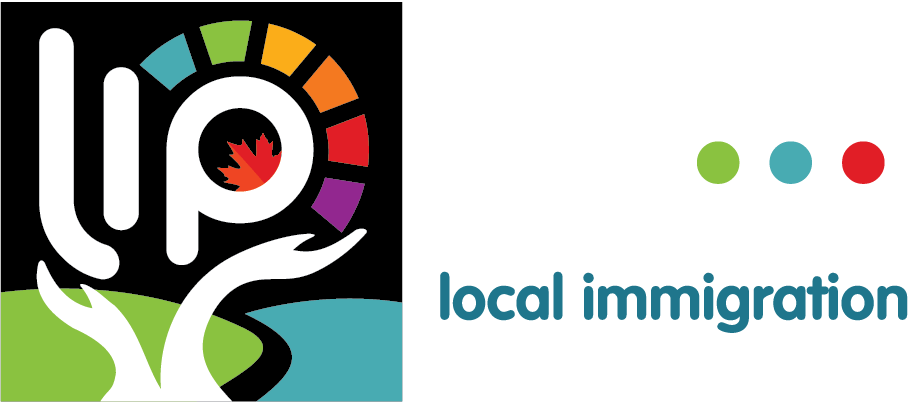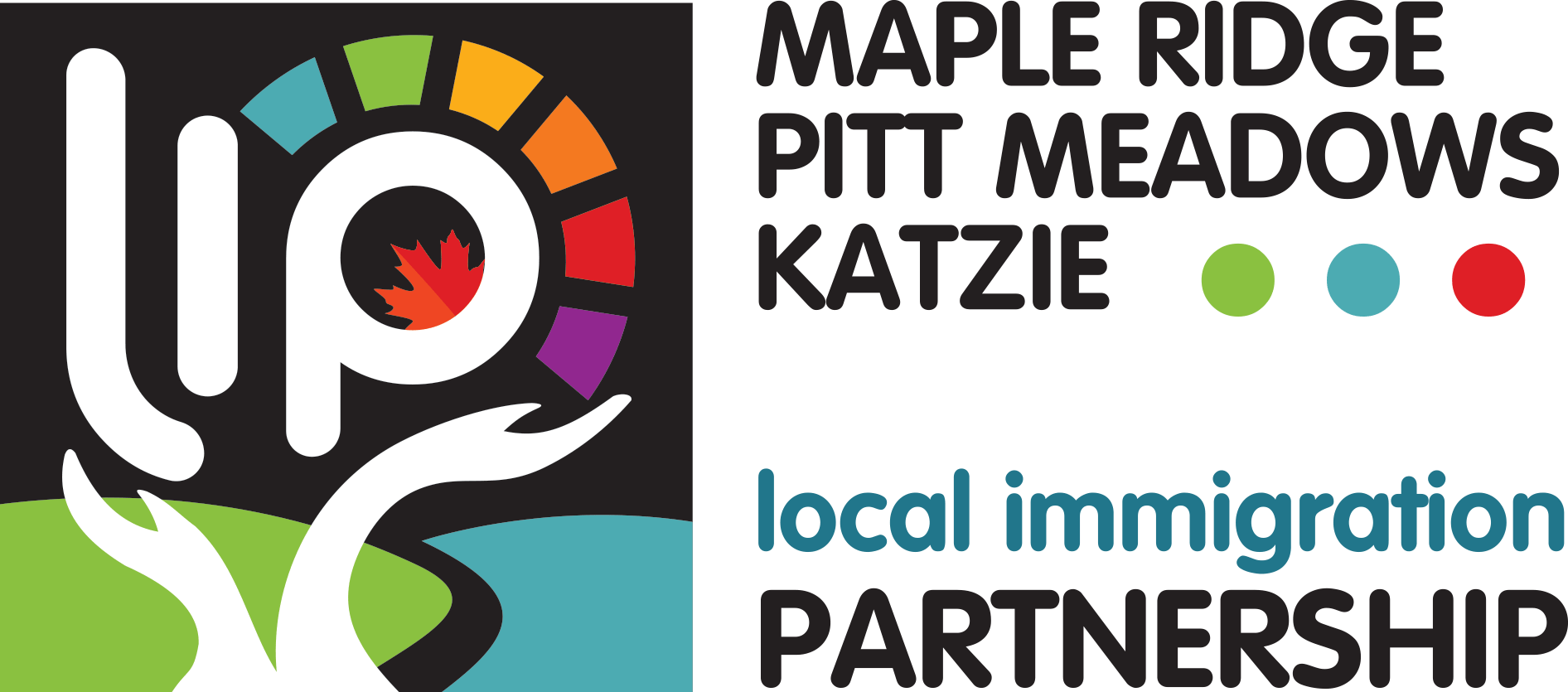Glossary of Terms
The Langley LIP compiled this glossary of 120+ settlement-related terms. We are grateful to the Langley LIP for sharing this valuable resource with us! It is our goal to update this list as needed; if you think a term should be added, removed, or revised, please let us know by sending an email to g.petkova@familyed.ca
A variety of sources were referenced, including:
- AMSSA’s Glossary of Terms for Frontline Settlement Workers
- IRCC’s Help Centre Glossary
- Annex A Negotiating Your Contribution Agreement with IRCC document
- BC Employment and Assistance Policy and Procedure Manual Definitions
- the BC Refugee Hub’s Glossary of Terms – Refugee & Refugee Claimants in Canada
- the Canadian Council for Refugees’ Refugees and Immigrants: A Glossary
- and UN High Commissioner for Refugees (UNHCR)’ UNHCR Master Glossary of Terms
A
C
E
F
I
L
N
P
R
S
U
Y
Accompanying family member
A spouse, common-law partner, dependent child or dependent child of a dependent child (grandchild), who plans to immigrate to Canada with the principal applicant. Accompanying family members are included on the application.
Agreement (or Contribution Agreement)
Previously referred to as Articles but now commonly used to refer to the Contribution Agreement plus and Schedules 1 to 4 in totality. It is a signed document (by the recipient and an authorized IRCC official) constituting a binding agreement between the two parties with respect to transfer payments for the provision of goods or services to a third party.
Approved in principle
When someone meets the minimum requirements to be a permanent resident, and has received a positive stage one assessment of their application (an “approval in principle” letter). In this situation, they will not become a permanent resident until an officer decides that they meet all remaining requirements and are not inadmissible. These requirements could include certain documentary requirements, such as having a passport issued by your country of citizenship.
Arranged employment
Arranged employment is when you have a permanent job offer from a Canadian employer that has been approved by Human Resources and Skills Development Canada. This job offer can improve your chances of having a federal skilled worker application approved.
Asylum
Protection that is offered to persons with a well-founded fear of persecution based on race, religion, nationality, political opinion or membership in a particular social group, as well as those at risk of torture or cruel and unusual treatment or punishment.
Border Services Officers
Officers of the Canada Border Services Agency (CBSA), a federal government agency, who have the legal authority to decide who can enter and remain in Canada. These officers have many of the same powers as police officers, including the right to conduct searches, make arrests, and seize documents or goods.
Bridging program
A program that helps trained workers address the gap between the knowledge and experience they have and what they need to work in their preferred job or field
Bursary
A scholarship to attend a post-secondary institution
Business class immigrants
Permanent residents in the economic immigrant category selected on the basis of their ability to establish themselves economically in Canada through entrepreneurial activity, self-employment or direct investment. Business immigrants include entrepreneurs, self-employed people and investors. The spouse or common-law partner and the dependent children of the business immigrant are also included in this category.
Canada Border Services Agency (CBSA)
A Canadian agency responsible for providing integrated border services that support national security priorities and facilitate the free flow of persons and goods, including animals and plants that meet all requirements
Canadian Experience Class (CEC)
This immigration category became effective in September 17, 2008. This is a prescribed class of persons who may become permanent residents on the basis of their Canadian experience. They must intend to reside in a province or territory other than Quebec and must have maintained temporary resident status during their qualifying period of work experience as well as during any period of full-time study or training in Canada.
Canadian Language Benchmarks (CLB)
The Canadian standard used to describe, measure and recognize English language ability of adult immigrants and prospective immigrants who plan to live and work in Canada. The Niveaux de classification linguistique canadiens (NCLC) is used to assess abilities in the French language.
Capacity Building
Increasing the skills and abilities of individuals, groups and organizations to plan, undertake and manage initiatives such as projects and programs. It also enhances the recipient’s capacity to organize these ventures, to keep them running, and to effectively deal with future issues and/or problems.
Catchment Area
Refers to the geographic area that an institution serves such as a school, hospital or other service provider
Category
Immigration categories are shown for the three main groups of permanent residents—family class, economic immigrants, and refugees—as well as for “other” immigrants who do not qualify in any of these categories. On an exceptional basis, the Immigration and Refugee Protection Act gives Immigration, Refugees and Citizenship Canada (IRCC) the authority to grant permanent resident status to individuals who would not otherwise qualify in any category—for example, in cases where there are strong humanitarian and compassionate considerations. In reference to labour market characteristics, the economic immigrant category is further divided into two subgroups: principal applicants, and spouse and dependants.
Certificate of nomination
A certificate issued by a province or territory that recommends a foreign national for permanent residence under the Provincial Nominee Program.
Certified photocopy
A photocopy of an original document. It must be readable and certified as a true copy of the original by an authorized person. The person compares the documents and marks on the photocopy: their name and signature, their position or title, the name of the original document, the date they certified the document, and the phrase “I certify that this is a true copy of the original document.”
Citizenship and Immigration Canada (CIC)
previous name for Immigration, Refugees and Citizenship Canada (IRCC)
Citizenship test
A test that applicants aged 18 to 54 must pass to in order to meet the knowledge requirement for Canadian citizenship. The test is usually written but is sometimes taken orally with a citizenship judge. The test assesses knowledge of Canada and knowledge of the responsibilities and privileges of citizenship.
Community Connections
This component recognizes settlement as a reciprocal process with rights and responsibilities for both the newcomers and the community/society that receives them. Through this component, activities focus on individual and community bridging, including mentoring programs; connecting with Canadian citizens, employers, community organizations and public institutions; fostering cultural awareness and social inclusion; and enhancing the capacity of mainstream institutions to address the needs of newcomers.
Community Sponsor (CS)
An organization that sponsors refugees but has not signed a formal agreement with IRCC. A community sponsor would normally sponsor fewer refugees than a Sponsorship Agreement Holder (SAH).
Confirmation of Permanent Residence Number (IMM 5292 or 5509)
You will find this number in top right corner of your Confirmation of Permanent Residence document issued to you by an Immigration, Refugees and Citizenship Canada office or by the visa office where you submitted your application. Your Confirmation of Permanent Residence number starts with a "T" followed by nine numbers (example: T100000000).
Constituent Group (CG)
A group authorized in writing by a sponsorship agreement hoilder (SAH) to sponsor refugees under the SAH’s sponsorship agreement. An example of a Constituent Group is a local congregation or chapter of a national church or organization that is a SAH.
Convention refugee
A person who is outside of their home country or country where they normally live and fears returning to that country because of a well-founded fear of persecution for reasons of race, religion, nationality, membership in a particular social group or political opinion.
Criminal Record Check (CRC) also known as Police Information Check (PIC) or Police Record Check
Under the Criminal Records Review Act, individuals working with children or vulnerable adults and who have unsupervised access to children or vulnerable adults must authorize a Criminal Record Check for their employer or authorized organization.
Cultural interpreters
Interpreters used in the Settlement or Resettlement context are usually “cultural” interpreters, that is, they are permitted to not only translate what the client has said but are also to provide information on cultural aspects which may be affecting understanding of a subject.
Canada-Ukraine Authorization for Emergency Travel (CUAET)
The Canada-Ukraine authorization for emergency travel (CUAET) is one of the many special measures the Government of Canada has introduced to support the people of Ukraine. It offers Ukrainians and their family members free, extended temporary status and allows them to work, study and stay in Canada until it is safe for them to return home.
Dependant
A spouse, common-law partner or dependent child of a permanent resident or principal applicant.
Dependent child
Under current legislation, children are dependent if they are unmarried and under the age of 22, or if they have been full-time students since before the age of 22, attend a post-secondary educational institution and have been substantially dependent on the financial support of a parent since before the age of 22 or, if married or a common-law partner, since becoming a spouse or a common-law partner, or if 22 or older, they have been substantially dependent on the financial support of a parent since before the age of 22 because of a physical or mental condition. A dependent child is either a biological child or an adopted child.
Designated third-party language test
This is a test that shows if your language skills meet our standards in each of these four categories: listening, speaking, reading and writing. There are agencies “designated” to give the tests. This means they are approved to do so by IRCC.
Economic Immigrants
Permanent residents selected for their skills and ability to contribute to Canada’s economy. The economic immigrant category includes skilled workers, business immigrants, provincial or territorial nominees, live-in caregivers and Canadian Experience Class.
Employment Related Services
The majority of newcomers come to Canada intending to enter the labour market. Examples of activities under this component include projects that help skilled immigrants obtain the training they need to get work in a regulated or non-regulated profession; skills training; provision of credential assessment process facilitation; internships; mentorships, work placements; and other services that are intended to equip newcomers with the skills and support they need for entry into the labour market. Ideally, services are provided as part of a seamless continuum of supports for both newcomers and employers.
English Conversation Circle (ECC)
An informal group where people come together to practice speaking English
Enhanced language training (ELT)
A program that provides adult newcomers with advanced, job-specific language training in English or French. ELT also uses mentoring, job placements and other ways to help newcomers find work.
Entrepreneur
Economic immigrants in the business immigrant category who are selected on the condition that they have managed and controlled a percentage of equity of a qualifying business for at least two years in the period beginning five years before they apply, and that they have a legally obtained net worth of at least CAN$300,000. They must own and manage a qualifying business in Canada for at least one year in the three years following arrival in Canada.
Family Class
Permanent residents sponsored by a Canadian citizen or a permanent resident living in Canada who is 18 years of age or over. Family class immigrants include spouses and partners (i.e., spouse, common-law partner or conjugal partner); parents and grandparents; and others (i.e., dependent children, children under the age of 18 whom the sponsor intends to adopt in Canada, brothers, sisters, nephews, nieces, and grandchildren who are orphans under 18 years of age, or any other relative if the sponsor has no relative as described above, either abroad or in Canada). Fiancés are no longer designated as a component of the family class under the Immigration and Refugee Protection Act.
Family members
An applicant’s closest relatives, in the context of an application to IRCC. It is defined as a spouse or common-law partner, dependent children, and their dependent children.
Family Reunification
The process of bringing together families, particularly children and elderly dependents with previous care-providers for the purpose of establishing or re-establishing long-term care. Separation of families occurs most often during armed conflicts or massive displacements of people.
Federal skilled worker
An immigrant selected as a permanent resident based on their education, work experience, knowledge of English and/or French, and other criteria that have been shown to help people succeed in the Canadian labour market. Spouses and children are included on the application. Quebec selects its own skilled workers, under the Quebec skilled worker Class (QSW).
Foreign Credential Recognition (FCR)
Foreign credential recognition is the process of verifying that the education and job experience obtained in another country are equal to the standards established for Canadian professionals. Credential recognition for regulated occupations is mainly a provincial responsibility that has been delegated in legislation to regulatory bodies.
Foreign student
Temporary residents who are in Canada principally to study in the observed calendar year. Foreign students have been issued a study permit (with or without other types of permits). Under the Immigration and Refugee Protection Act, a study permit is not needed for any program of study that is six months or less. Foreign students exclude temporary residents who have been issued a study permit but who entered Canada principally for reasons other than study.
Foreign Workers
Temporary residents who are in Canada principally to work in the observed calendar year. Foreign workers have been issued a document that allows them to work in Canada. Foreign workers exclude temporary residents who have been issued a work permit but who entered Canada mainly for reasons other than work.
French Immersion
A separate program in primary schools where instruction is offered in the French language for second language learners. There are 2 models:
- Early French Immersion – beginning in Kindergarten
- Late French Immersion – beginning in Grade 6
Full-time job equivalent
Defined as 1,950 hours of paid employment per year.
Full-time study
Study schedule with a minimum number of hours (15 hours) of instruction per week during the academic year, including any period of training in the workplace that is part of the student’s studies. Students should ask their school what the full-time requirements are.
Fundamental School
A school involving a more structured approach to learning. Parents choose the school, not the programs. No boundary limits restrict attendance at this school which means children from anywhere in the Langley district may attend as space allows.
Government Assisted Refugee (GAR)
Permanent residents in the refugee category who are selected abroad for resettlement to Canada as Convention refugees under the Immigration and Refugee Protection Act or as members of the Convention Refugees Abroad Class, and who receive resettlement assistance from the federal government.
Group of Five (G5)
A group of five or more Canadian citizens or permanent residents, each of whom is at least 18 years of age, who agree to work together to sponsor a refugee.
Humanitarian and Compassionate Cases
Permanent residents included with other immigrants who are sponsored humanitarian and compassionate cases outside the family class, humanitarian and compassionate cases without sponsorship, and cases that take into account public policy. On an exceptional basis, the Immigration and Refugee Protection Act gives Immigration, Refugee and Citizenship Canada the authority to grant permanent resident status to individuals and families who would not otherwise qualify in any category, in cases where there are strong humanitarian and compassionate (H&C) considerations, or for public policy reasons. The purpose of these discretionary provisions is to provide the flexibility to approve deserving cases not anticipated in the legislation.
Immigration consultant
A person who provides support, advice or help, for a fee or other consideration, to someone who wants to immigrate to Canada. Canada’s immigration law defines representatives and the terms of their services. This person does not work for the Canadian government.
Immigration status
A non-citizen’s position in a country—for example, permanent resident or visitor.
Immigration, Refugees and Citizenship Canada (IRCC)
A federal government department which facilitates the arrival of immigrants, provides protection to refugees and offers programming to help newcomers settle in Canada.
Implied Status
If a visitor, student or temporary worker applies to extend their status, prior to the expiry of that status, they may legally remain in Canada until a decision is made on the application. In this situation, the person has implied status.
Indirect Services
These are projects and activities that do not involve a direct intervention or service to eligible newcomer clients. There are two key purposes: to enhance capacity in the IRCC-funded settlement community to optimize client outcomes; and to assist partners engaged in settlement (employers, community organizations, other levels of government and public institutions) to connect with newcomers, establish inclusive practices, and facilitate the contribution of newcomers to Canada. They include projects that are aimed at: community-level planning and coordination (e.g. Local Immigration Partnerships (LIPs)); development of new and innovative interventions (e.g. pilots); support to facilitate the foreign credential assessment process with regulatory bodies and related organizations; support to employers to connect with job-ready newcomers within their community; development/updating of training content, tools and curricula; and, research on unmet needs and successful practices.
Information and Orientation Services
Includes any type of support provided aimed at orienting the person to the life in Canada; can include providing information and helping with navigating things like rights and responsibilities, community resources and government programs. Also includes providing connection and referral to organizations who can provide support.
Interim Federal Health Program (IFH)
The Interim Federal Health Program provides all resettled refugees with coverage for the following, until provincial health insurance is available; essential and emergency health services for the treatment and prevention of serious medical conditions; the treatment of emergency dental conditions; contraception, prenatal and obstetrical care, eyewear; and approved prescription medications.
Internally Displaced person (IDP)
A person who is forced to leave their home but who is still within the borders of their home country
International Experience Canada (IEC)
A youth exchange program allowing Canadians, 18 to 35, to live and work in other countries, generally for up to one year at a time. The reciprocity of the program allows for youth from these same countries to live and work in Canada for up to one year. Related terms: International youth program, Working Holiday Program.
International Student
See Foreign Student
Interpretation
Oral translation from the client’s language of origin into either official language for immediate and essential settlement needs.
Intra-company transferee
A qualified employee who is transferred within a company to work in Canada on a temporary basis.
Investors
Economic immigrants in the business immigrant category who are required to make a substantial investment in Canada that is allocated to participating provinces and territories for economic development and job creation.
Labour Market Impact Assessment (LMIA) formerly known as Labour Market Opinion (LMO)
A Labour Market Impact Assessment (LMIA) is a document that an employer in Canada may need to get before hiring a foreign worker. A positive LMIA will show that there is a need for a foreign worker to fill the job and that no Canadian worker can do the job. A positive LMIA is sometimes called a Confirmation letter.
Landing Paper
An IMM 1000 Record of Landing (also known as a Landing Paper) is a document that new Permanent Residents received when they landed in Canada.
Language Instruction for Newcomers to Canada (LINC)
Free English language training programs for adult newcomers to Canada. They are funded by the federal government and delivered by school boards, colleges and local organizations that provide services to newcomers. The LINC provider in Langley is New Directions Vocational Testing and Counselling Services.
Language Training
Official language training is a key settlement service for which there is an established infrastructure, with clear attainment benchmarks being used by trainers and assessors. Official language proficiency is key to success for newcomers, not only in the labour market, but in navigating life outside of work. Please note that an application under the Language Training component should follow the Canadian Language Benchmarks (CLB). Please visit www.language.ca.
Level of education
Eight levels of education are shown for permanent residents who are 15 years of age or older, based on the number of years of schooling or the certificate, diploma or degree obtained.
Level of study
There are five levels of study for foreign students in Canada. They are: universities, colleges, trade schools, other post-secondary institutions and secondary school or less.
Live-in caregiver
Persons granted permanent resident status as economic immigrants after their participation in the Live-in Caregiver Program. This program brings temporary foreign workers to Canada as live-in employees to work without supervision in private households to care for children, seniors or people with disabilities. Participants in this program may apply for permanent resident status within three years of arrival in Canada, once they have completed two years of employment as live-in caregivers. The Live-in Caregiver Program replaced the Foreign Domestic Movement Program on April 27, 1992.
Migrant
A person who is outside their country of origin. Sometimes this term is used to talk about everyone outside their country of birth, including people who have been Canadian citizens for decades. More often, it is used for people currently on the move or people with temporary status or no status at all in the country where they live.
Minor child
A minor child is a child who is under the age of 18 years in the provinces of Alberta, Manitoba, Ontario, Prince Edward Island, Quebec and Saskatchewan. In all the other provinces it is the age of 19 years.
Multiple-entry visa
A visa that allows someone to leave and re-enter Canada more than once during a defined period of time.
National Occupational Classification (NOC)
The National Occupation Classification is a list of all the occupations in the Canadian labor market. It describes each job according to skill type and skill level. The NOC is used to collect and organize job statistics and to provide labour market information. It is also used as a basis for certain immigration requirements.
Naturalization
The formal process by which a person who is not a Canadian citizen can become a Canadian citizen. The person must usually become a permanent resident first.
Naturalized Canadian Citizen
A person not born in Canada who becomes a Canadian citizen.
Needs Assessment and Referral (NARS)
“Needs assessment” is a formal review of newcomer needs across a broad spectrum of settlement areas (language, employment, housing, etc.). Referrals are links to specific services that help newcomers settle in Canada. These activities usually result in the development of a Settlement Plan for the newcomer, which outlines a strategy to achieve settlement success based on identified needs and available CIC-funded service provider and other community supports.
Non-accompanying family members
Family members who are dependent on the principal applicant but who are not immigrating to Canada. They include a spouse or common-law partner, dependent children, and the children of a dependent child. These people must be listed on the principal applicant’s application for permanent residence. They should have a medical exam so they can remain eligible for sponsorship at a later date.
Occupational skill level
Five skill levels, based on the National Occupational Classification, are shown for permanent residents 15 years of age or older as well as for temporary foreign workers. • Level O (managerial) • Level A (professional) • Level B (skilled and technical) • Level C (intermediate and clerical) • Level D (elemental and labourers)
Permanent residents
People who have been granted permanent resident status in Canada. Permanent residents must live in Canada for at least 730 days (two years) within a five-year period or risk losing their status. Permanent residents have all the rights guaranteed under the Canadian Charter of Rights and Freedoms such as equality rights, legal rights, and mobility rights, freedom of religion, freedom of expression and freedom of association. They do not, however, have the right to vote in elections.
Person without Status
A person who has not been granted permission to stay in the country, or who has stayed after their visa has expired. The term can cover a person who falls between the cracks of the system, such as a refugee claimant who is refused refugee status but not removed from Canada because of a situation of generalized risk in the country of origin.
Post-graduation work permit
A document issued by IRCC to eligible foreign students that allows the bearer to work legally in Canada after completing their studies. It is available for those who have graduated from an approved program of study at an eligible post-secondary institution in Canada that is participating in the Post-Graduation Work Permit Program, and applied to IRCC within 90 days of completing all degree or program requirements.
Pre-removal risk assessment (PRRA)
A thorough process that evaluates whether a person would face persecution, torture, risk to life or risk of cruel and unusual treatment or punishment, if returned to his or her country of origin.
Principal applicant
When a family applies together, one member must be the main or “principal” applicant. For example, a mother applying for permanent residence with her three children would be the principal applicant. When parents are included in an application, dependent children cannot be principal applicants.
Prior learning Assessment and Recognition (PLAR)
This is a process that is used across Canada by schools, colleges, universities, employers and governments to formally recognize a person’s skills that they have acquired outside of formal education settings. This process allows people to have these skills assessed and possibly recognized in the form of academic credits. For more information on prior learning assessment and recognition, see the Canadian Association of Prior Learning Assessment (Pan-Canadian).
Privately Sponsored Refugee (PSR)
A person outside Canada who has been determined to be a Convention refugee or member of the Country of Asylum class and who receives financial and other support from a private sponsor for one year after their arrival in Canada.
Protected person
A person who has been determined to be a Convention refugee or person in similar circumstances by a Canadian visa officer outside Canada, a person whom the Immigration and Refugee Board of Canada has determined to be a Convention refugee or in need of protection in Canada, or a person who has had a positive pre-removal risk assessment (in most cases).
Protected temporary resident
A person admitted to Canada on a temporary resident permit because a Canadian visa officer abroad has determined that they face an immediate threat to their life, liberty or physical safety.
Provincial Nominee Program (PNP)
A program that allows provinces and territories to nominate candidates for immigration to Canada.
Provincial or territorial nominee
Someone who is nominated for immigration to Canada by a provincial or territorial government that has a Provincial Nominee Program. Nominees have the skills, education and work experience needed to make an immediate economic contribution to the province or territory that nominates them.
Record of Landing
See Landing Paper
Refugee and Humanitarian Resettlement Program
The Government of Canada’s program under which refugees from abroad, who meet Canada’s refugee resettlement criteria, are selected and admitted to Canada.
Refugee Claimant or Asylum Seeker
A person who has applied for refugee protection status while in Canada and is waiting for a decision on his/her claim from the Immigration and Refugee Board of Canada.
Refugee dependant
Foreign national that is the dependant of a protected person in Canada whose application for permanent residence is processed concurrently with that of the principal applicant in Canada. Refugee dependants may be living abroad or in Canada.
Refugee landed in Canada
A permanent resident who applied for and received permanent resident status in Canada after their refugee claim was accepted.
Refugee protection status
When a person, inland or overseas is determined to be a Convention refugee or protected person, they are said to have refugee protection status in Canada. Refugee protection is given to a person in accordance with the Immigration and Refugee Protection Act.
Refugees
Permanent residents in the refugee category include government-assisted refugees, privately sponsored refugees, refugees landed in Canada and refugee dependants (i.e., dependants of refugees landed in Canada, including spouses and partners living abroad or in Canada).
Relationship of convenience
A marriage, common-law relationship, conjugal partnership or adoption that is not genuine, or was entered into for status or privilege in Canada. People in these relationships are not members of the family class.
Removal order
When an immigration official orders a person to leave Canada. There are three types of removal orders (departure, exclusion and deportation) and each one has different consequences.
Resettlement
The transfer of refugees from the country in which they have sought refuge to another State that has agreed to admit them. The refugees will usually be granted asylum or some other form of long-term resident rights and, in many cases, will have the opportunity to become naturalized citizens. For this reason, resettlement is a durable solution as well as a tool for the protection of refugees. It is also a practical example of international burden and responsibility sharing.
Residence requirement
The amount of time a permanent resident must live in Canada to be eligible for a grant of Canadian citizenship. Adults must have lived in Canada for at least three years (1,095 days) in the past four years preceding immediately the date of application. It does not apply to children under 18 years old.
Safe third country
A safe third country is a country, other than Canada and the country of alleged persecution, where an individual may make a claim for refugee protection. In Canada, the Immigration and Refugee Protection Act outlines the criteria for designating a country as a safe third country.
Service Provider Organization (SPO)
A service provider organization (SPO) is an agency that provides services for newcomers to Canada. Service provider organizations offer programs that can give newcomers resources and training to live and work in Canada. Their programs can help refugees who often have a difficult time with day-to-day tasks like finding an apartment, taking public transportation, or making a doctor’s appointment. These organizations can also help refugees complete forms, get permanent resident cards, health insurance, social insurance numbers, etc. They also offer interpretation and translation services to help with such special needs as giving medical backgrounds to doctors. In Langley, the SPOs are Immigrant Services Society of British Columbia (ISSofBC) and Langley Community Services Society (LCSS).
Settlement Worker
A settlement worker is an individual who provides guidance to newcomers regarding resources, services and benefits that are available to them. They give assistance in accessing education, recreation, finance, legal, medical, social services among others. To connect with a settlement worker, see Service Provider Organization (SPO) or Settlement Workers in Schools (SWIS).
Settlement Workers in Schools (SWIS)
An outreach program aimed at assisting newcomer students and their families settle and integrate in their school and community. A SWIS worker provides information and orientation services.
Sexual and Gender-Based Violence (SGBV)
Sexual and Gender-Based Violence (SGBV): Acts that inflict physical, mental or sexual harm or suffering, threat of such acts, coercion and other deprivations of liberty, that target individuals or groups of individuals on the basis of their gender.
Skill level
To be eligible for the Federal Skilled Worker Class and Canadian Experience Class, foreign workers must have work experience at specified skill levels. Skill levels for occupations come from the National Occupational Classification (NOC) system. They are classified by type of work and training required to be proficient.
Sponsor
A Canadian citizen or permanent resident who is 18 years of age or older, and who legally supports a member of the Family Class to become a permanent resident of Canada.
Sponsored person
A foreign national who has applied for permanent residence under the Family Class, has an approved Canadian sponsor and meets the requirements of the Family Class.
Sponsorship agreement
A signed contract between a sponsored immigrant and his or her sponsor, outlining the obligations and commitments of both parties. The agreement is required before the sponsored person can immigrate to Canada.
Sponsorship agreement-holder (SAH)
An incorporated organization that signs an agreement with CIC to sponsor refugees abroad. A SAH can authorize other groups in the community to sponsor refugees under its agreement. These groups are known as “constituent groups.”
Start-up visa
Permanent residence visa given to a person or group of persons who applied under the Start-up Business Class and received a commitment from a designated angel investor group or venture capital fund, and who intend to operate a new business in Canada.
Stateless Person
A person that no state recognizes as a citizen. Some refugees may be stateless but not all are. Similarly, not all stateless people are refugees.
Study permit
A document issued by IRCC that authorizes a foreign national to study at an educational institution in Canada for the duration of the program of study. It sets out conditions for the student such as whether their travel within Canada is restricted and when they have to leave.
Subsidy
A grant or financial aid
Support Services
In addition to the five major program components, clients have access to support services. This program component, which acts as an “enabler” to support participation in IRCC-funded settlement services, includes services for care and supervision of children of IRCC Settlement Program clients. Note that in British Columbia, childcare and childminding services are governed under the Community Care and Assisted Living Act and the Child Care Licensing Regulation, including unlicensed childminding that is exempt from license as defined by the same Act. Care provisions funded by IRCC will be required to follow the act and regulation. Support Services also include accommodation for clients with disabilities; assistance with transportation to settlement programs; translation and interpretation services (for example, of documents from country of origin) and short-term or “transitional” settlement-related crisis counselling services which can deal with immediate barriers to the uptake of settlement programming due to personal or family crises, including the referral of newcomers to more targeted, publicly available services.
Temporary resident (TR)
Status of a foreign national who is in Canada legally for a short period. Temporary residents include students, temporary foreign workers and visitors, such as tourists.
Translation
A written rendering of a word in another language
Travel document
An identity document issued by a government or an international organization (such as the United Nations). It contains a person’s photograph and personal information, and allows that person to travel between countries.
Unique Client Identifier (UCI)
Unique Client Identifier (UCI) also referred to as a Client Identification Number (Client ID), can be found on any official document issued by an Immigrants, Refugees and Citizenship Canada office, Case Processing Centre or a Canadian visa office outside Canada. A Client ID consists of four numbers, a hyphen (-) and four (4) more numbers (example: 0000-0000). A person who has never dealt with Immigration, Refugees and Citizenship Canada (IRCC) before will not have a Client Identification Number.
United Nations High Commissioner for Human Rights (UNHCHR)
Established in 1993, the United Nations High Commissioner on Human Rights is responsible for coordinating human rights activities throughout the entire UN system, and has overall responsibility for the activities of the UN Centre for Human Rights. This broad mandate enables the Commissioner to be actively engaged in addressing almost any human rights issue/ violation around the globe. S/he has the role of promoting respect for human rights, coordinating and rationalising the UN human rights programme, rendering UN human rights machinery more effective and preventing human rights violations.
Urgent Protection Program (UPP)
The Urgent Protection Program (UPP) allows Canada to respond to urgent requests from the United Nations High Commissioner for Refugees (UNHCR) to resettle refugees who face immediate threats to their life, liberty or physical safety.
Vulnerable Persons
Physically, mentally or socially disadvantaged persons who may be unable to meet their basic needs and may therefore require specific assistance.
Work permit
A document issued by IRCC that authorizes a person to work legally in Canada. It sets out conditions for the worker such as: the type of work they can do, the employer they can work for, where they can work, and how long they can work.
Youth
As per IRCC, individuals aged 12 to 30 years, for the purposes of accessing services, some programs may have a different age range as identified by the program funder.
 Close
Close






